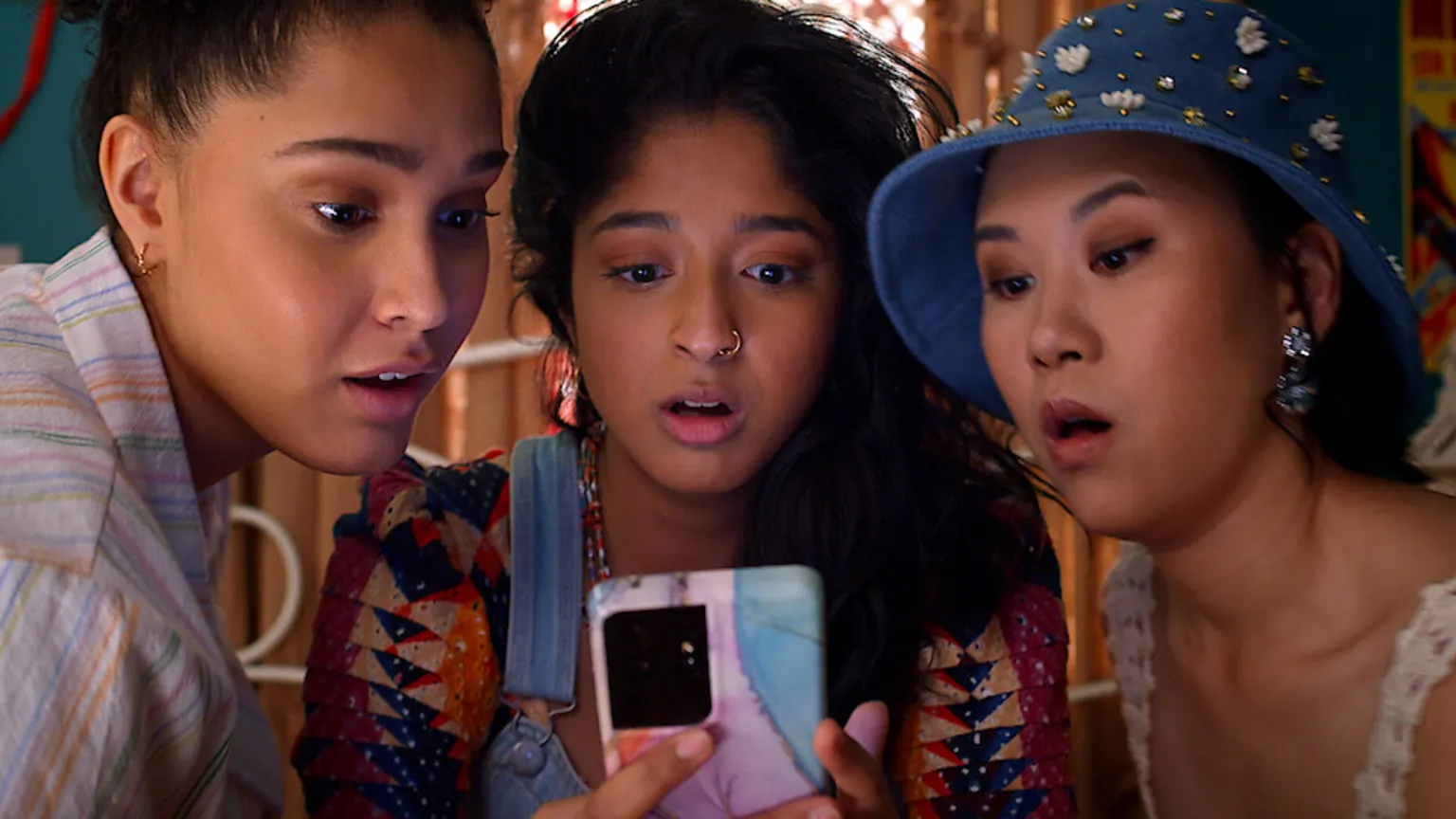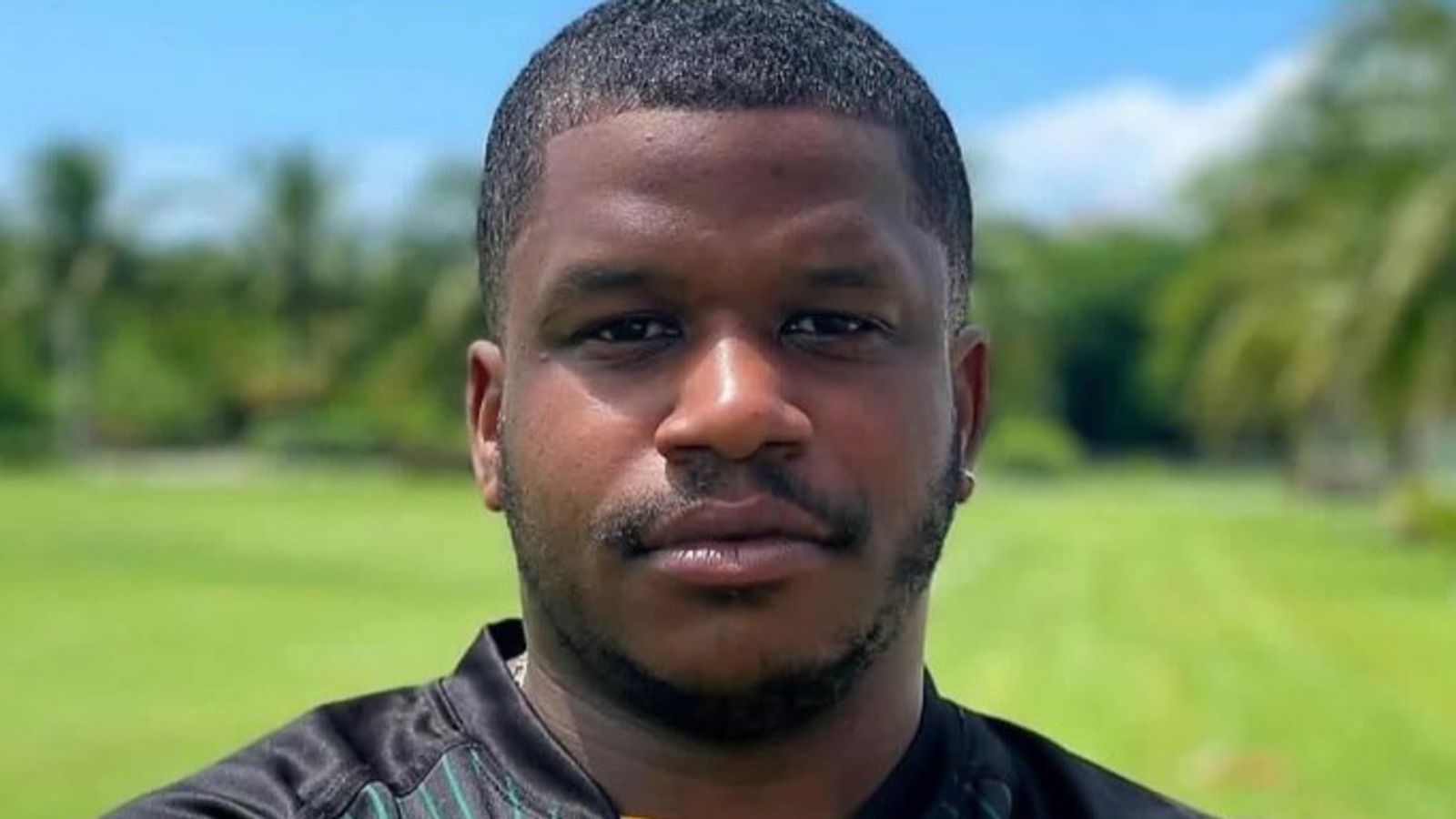Why Gen Z & Millennials are hung up on answering the phone
Hi, you’ve reached the voicemail of Yasmin Rufo. Please don't leave a message as I won’t listen to it or call you back.

Unfortunately that isn't my answerphone message but do I, along with most Gen Z and millennials, wish it was? Absolutely.
A recent survey found a quarter of people aged 18 to 34 never answer the phone - respondents say they ignore the ringing, respond via text or search the number online if they don't recognise it.
The Uswitch survey of 2,000 people also found that nearly 70% of 18-34s prefer a text to a phone call.
For older generations, talking on the phone is normal - my parents spent their teenage years fighting with their siblings over the landline in the corridor only to then have their entire family listen in to their conversations.
I used the landline for business calls only in the late nineties
In contrast, my teenage years were spent texting.
From the moment I received my pink flip Nokia on my 13th birthday, I was obsessed with texting.
I would spend every evening after school formulating 160-character texts to my friends, removing every unnecessary space and vowel until the message resembled jumbled up consonants even GCHQ would struggle to decipher.
After all, when it costs 10p a text there was no way I was going to spill over to 61 characters.
In 2009, phone calls on my mobile would have cost a fortune.
“We didn’t give you this phone so you could gossip with your friends all evening,” my parents would remind me as they looked through my monthly phone bill.
And so a generation of texters were born: mobile phone calls were for emergencies and the landline was used infrequently to speak to your grandparents.
The mean girls would have definitely thought a three-way voice call in 2024 wasn't fetch
Dr Elena Touroni, a consultant psychologist, explains that because young people didn't develop the habit of speaking on the phone, "it now feels weird as it's not the norm".
This can make young people fear the worst when their phone starts ringing (or silently lighting up because no-one under the age of 35 has a loud ringtone).
More than half of the young people who responded in the Uswitch survey admitted that they thought an unexpected call means bad news.
Psychotherapist Eloise Skinner explains that anxiety around calls comes from "an association with something bad - a sense of foreboding or dread".
"As our lives get busier and working schedules more unpredictable, we have less time to call a friend simply to catch up. Phone calls, then, become reserved for the important news in our lives, which can often be complicated and difficult."
"It's exactly that," says 26-year-old Jack Longley, adding that he also never responds to unknown numbers as "it's either scammers or cold callers".
"It's easier to just ignore the calls instead of sifting through to find out which ones are legitimate."
But not speaking on the phone doesn't mean young people aren't in touch with their friends - our group chats ping throughout the day with a mixture of banal messages, memes, gossip and, more recently, voice notes.
Many of these conversations now take place on social media, particularly on Instagram and Snapchat where it's easier to send images and memes alongside texts.
While we all agree that phone calling is a big no-no, the use of voice notes has split the younger generations.
In the Uswitch survey, 37% of 18-34s say voice notes are their preference of communication. In comparison, only 1% of 35 to 54-year-olds prefer voice messages over a call.
The voice note is the Gen Z equivalent of marmite - you either love or hate them
"A voice note is just like talking on the phone but better," says Susie Jones, a 19-year-old student. "You get the benefits of hearing your friend's voice but comes with no pressures so it's a more polite way of communicating".
But for me, listening to a five-minute voice note from a friend updating me about their life is painful - they get side-tracked, every second word is "like" or "uhm" and the whole story could have been told in a couple of text messages.
Both texts and voice notes allow young people to participate in conversations at their own pace and allows them to give more thoughtful and considered responses.
Workplace phone phobia
But to what extent does phone call phobia in your personal life start affecting your work life?
Henry Nelson-Case is a 31-year-old lawyer and content creator whose series of "overwhelmed millennial" videos are painfully relatable - sketches include the angst of sending a company-wide email, politely refusing to work overtime and of course, one about an employee doing anything to avoid a phone call.
He says "it's the anxiety associated with real-time conversations, potential awkwardness, not having the answers and the pressure to respond immediately," that makes him hate talking on the phone.
"Phone calls are more exposing and require a higher level of intimacy whereas messaging is detached and allows you to connect without feeling vulnerable or exposed," explains Dr Touroni.
Only Cher and Dionne from Clueless could make talking on the phone remotely cool
Dunja Relic, a 27-year-old lawyer, says she steers clear of workplace calls because "they can be time consuming and set you back on your tasks".
Skinner describes this as the 'this could have been an email' sentiment.
"There's a growing sense of protection over our time and calling someone requires the recipient to pause their day and dedicate attention to the conversation - a difficult thing for multitaskers to do."
James Holton, a 64-year-old business owner, says his younger employees rarely respond to phone calls and "either have a default message that says they’re busy or they put my number on diverted calls, so the call never goes through".
"They always have an excuse up their sleeves, with the most common being that my phone is silent, so I never saw it and forgot to call you later."
He says he has definitely had to adapt after he noticed "a visible communication gap" and "if employees are more comfortable with texts, then it's my responsibility to respect that choice".
But, with a preference for non-verbal communication and a tendency to work from home, are we losing the ability for unscheduled and informal conversations?
Skinner says if the current trend continues then "we might lose a sense of closeness or connection".
"When we communicate verbally we feel more aligned, emotionally, professionally or personally," she continues. "This connection can lead to a greater sense of fulfilment, especially in the workplace."
Ciara Brodie, a 25-year-old supermarket area manager, bucks the trend and says she "loves and appreciates when my seniors at work call me".
"It's more thoughtful than a text because it requires a certain amount of effort, so you really know that your manager values your input."
She especially likes talking to colleagues over the phone on days she works from home as "it can be solitary, so it's nice to stay connected".
While some people may say this new communication trend is further proof of us being "generation snowflake", it's actually far from that.
Instead, it's about adapting. No doubt 25 years ago people were resistant from switching from fax to email, but the change has made communication far more efficient.
Perhaps now it's time to recognise the power of text and just as we ditched the fax machine in the 1990s, we can leave the dreaded phone calls behind in 2024.
-BBC






